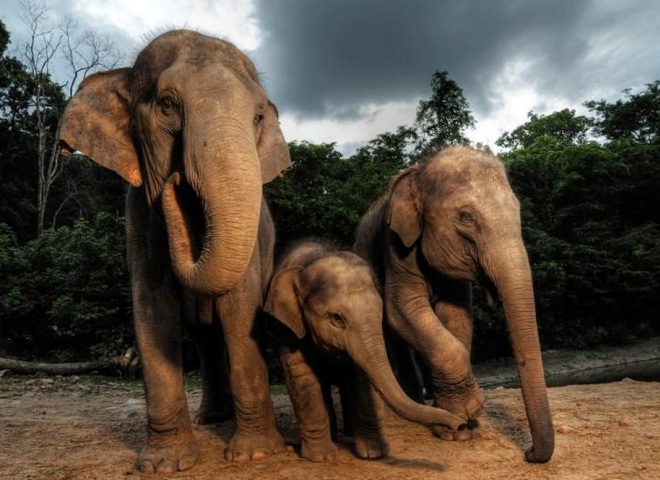Botswana's government has revoked the licenses of two professional hunters who shot dead a research elephant and then destroyed its collar to try to hide the evidence. In a statement late on Saturday, the environment and tourism ministry said that professional hunters Michael Lee Potter and Kevin Sharp had surrendered their licenses after shooting the elephant last month.
Their nationalities could not be immediately established. Potter was banned for an indefinite period and Sharp for three years. They were not available for comment. "In addition, the two hunters will replace the destroyed collar," the ministry said.
2015 killing of 'Cecil, the lion'
The shooting recalled the killing of 'Cecil, the lion' by an American hunter in neighboring Zimbabwe in 2015, also an animal that had a research collar and was supposed to be protected. His death provoked outrage on social media. The Botswana Forest Ministry reiterated that it "will work with the hunting industry to ensure that the necessary ethical standards are upheld."

Botswana President Mokgweetsi Masisi sparked global controversy when he lifted a ban on elephant hunting in May. The ban had been installed five years earlier by his predecessor, Ian Khama, an ardent conservationist. In May this year, Botswana lifted its five-year ban on elephant hunting, after coming under pressure from the locals who blamed the willife for destruction of crops and wreaking havoc on locals' livelihoods.
Africa's overall elephant population is declining due to poaching but Botswana, home to almost a third of the continent's elephants, has seen numbers grow to 130,000 from 80,000 in the late 1990s.
Officials in the southern African country say the animals are causing problems for farmers by ripping up their crops, so hunting is necessary to reduce their numbers. But the global activist group Conservation Action Trust points out that the numbers cannot be country-specific since some 216,000 African elephants migrate freely between Angola, Botswana, Namibia, Zambia and Zimbabwe, making it difficult to classify them as one country's wildlife.
Moreover, drought often pushes them to emigrate far into the south where human habitations are large. However, Botswana has more open space than many other country for the elephants to roam. The mostly arid country the size of France has a human population of around 2.3 million, and its expanses of wilderness draw millions of foreign tourists to view its wildlife.









